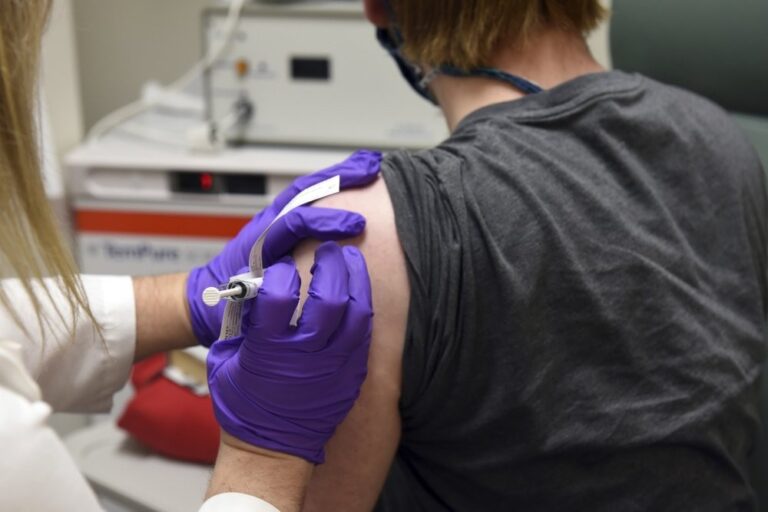
The government has a plan to innoculate 72 per cent of the country’s total population against COVID-19.
It is said vaccinating more than two-thirds of the population would work as immune power at the community level and the rest of the population need not be vaccinated. Vaccine has not been tested on children so far and the plan is to vaccinate all except the children, Dr Sameer Kumar Adhikari, Associate Spokesman at the Ministry of Health and Population, said.
Since the vaccine that have been developed now have been tested on people above 15 years only, in Nepal also the vaccines would be given to the people of this age group only. Twenty-eight per cent of the country’s population is below 15 years and they would not be vaccinated.
Dr Adhikari said this section of the population would also be vaccinated once the tests on people above 15 years of age were successful.
The government is to vaccinate 20 per cent of the population in the first phase. The Ministry has prepared to bring the anti-COVID-19 vaccines under the ‘COVAX Facility’ mechanism comprising of three organisations, namely, the Word Health Organization (WHO), Global Vaccine Alliance (GAVI) and CEPI. The vaccines would be brought free of cost as the mechanism is providing cost-free vaccines to the poor and low-income countries.
Coordinator of the COVID-19 Vaccine Advisory Committee, Dr Shyam Raj Uprety said diplomatic letters have already been sent on December 4 for the vaccines to be brought through COVAX Facility. Out of the 20 per cent vaccines coming in the first lot, three per cent would be given to health workers, security personnel and the elderly people.
The government will bring the rest 52 per cent vaccines through government-to-government (G2G) from diplomatic missions as per the public procurement regulations and through contract.
Dr Uprety said the government has allocated Rs 48 billion for procurement of the vaccines.
The Pfizer and BioNTech, Moderna (USA), Oxford-AstraZeneca (UK), ‘Sputnik-V’ and Gamaleya (Russia) and ‘Sinovac’ (China) vaccines are in the last stage of test. Among these vaccines, the vaccine developed by Pfizer Company has been successfully tested and has been recently approved by the WHO.
The vaccine developed by Oxford-AstraZeneca has been foud appropriate in the case of Nepal. The vaccine developed by Pfizer and BioNTech has to be stored in minus 80 degrees celsius and the vaccine developed by Moderna has to be stored in minus 20 degrees Celsius temperature. Experts say the last two vaccines are not suitable in the country’s context.
The vaccines developed by Oxford-AstraZeneca, which is in the last stage of testing can be stored at two to eight degrees Celsius temperature which is suitable in our case, said the Health Ministry associate spokesperson.
Source : RSS,






